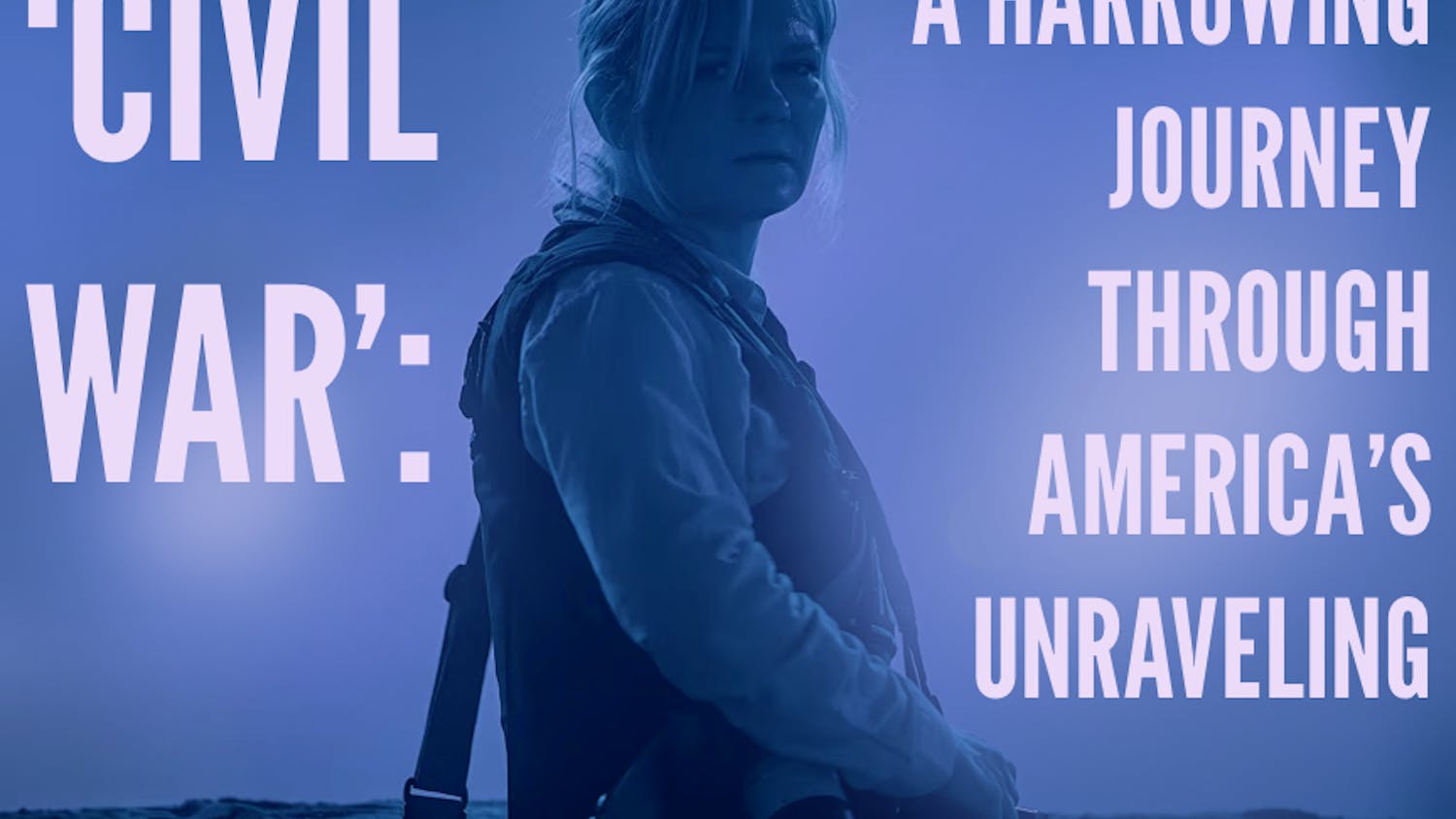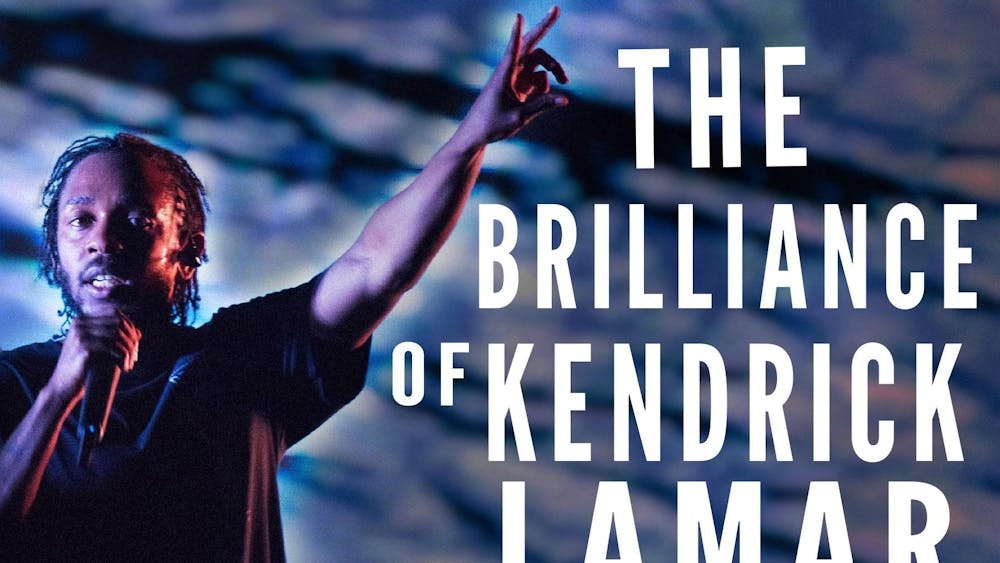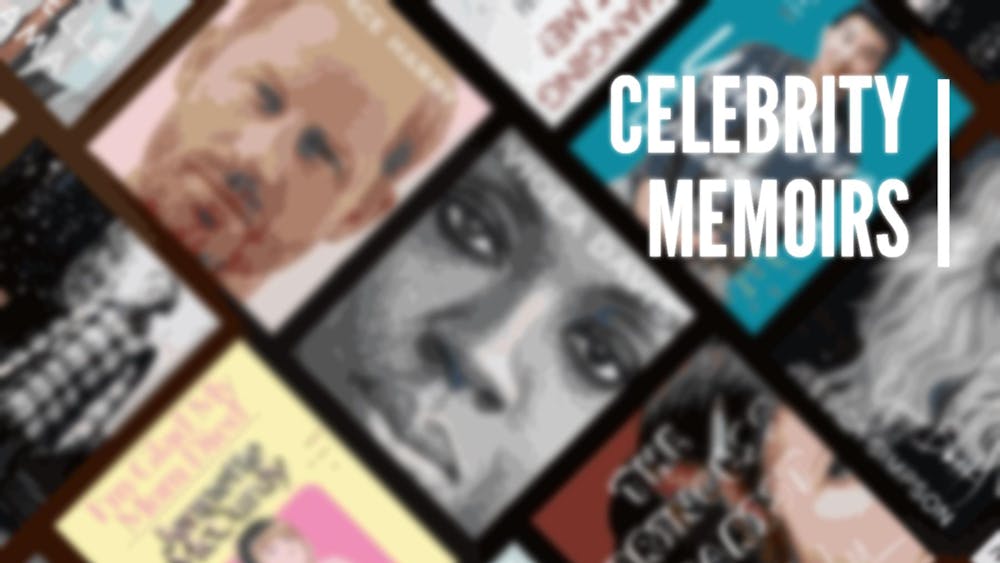
“Dope” begins with an easy transition from Naughty By Nature's “Hip Hop Hooray” to a Bitcoin breakfast table discussion. The 2015 film, directed by Rick Famuyiwa, continues in this “‘90s and now” limbo like your local F.M. radio station — but thankfully with a much better soundtrack.
The three protagonists, Malcolm (Shameik Moore), Diggy (Kiersey Clemons) and Jib (Tony Revolori) are into “White Sh*t” like Magna Comics, Donald Glover, TV On The Radio and Getting Good Grades. (Note: Revolori starred in Wes Anderson’s “The Grand Budapest Hotel” as Zero — further affirming the crew’s “White Sh*t” associations.) The three indie nerds pick up clothes and vinyls at thrift stores to play up their ‘90s aesthetic, bicycle around Inglewood and play in a punk band they formed (Awreeho, pronounced "Oreo") after quitting marching band when prompted to learn the “Harlem Shake.”
The above activities set them up as prime bait for corny bullies who steal their shoes in chase scenes — one of the satirical plays on ‘90s movies (the only memory Malcolm has of his dad is being gifted “Super Fly.”) Another grating ‘90s retrospect is the beginning narration which superfluously introduces information any viewer would have figured out soon enough on his or her own. Furthering the unfortunate narration, the stuck-in-the-‘90s narrator questionably introduces Diggy as “a lesbian — although, from the way she dresses you might not have noticed she was a girl.”
Alongside the cringe-worthy narration and stereotypical bullies, the drug-dealing and violence of the Inglewood neighborhood, named “The Bottoms,” harkens back to movies produced during the ‘90s — but sometimes "Dope" does so distastefully. In a beginning scene, a nerd is killed at a burger joint — it could be a poignant depiction, but it's exploited for laughs when blood covers his GameBoy and Jib attempts to acquire his impressive comic book collection.
An aspect of the '90s that “Dope” gets right, alongside the colorful wardrobes, is the music. The soundtrack features Nas and A Tribe Called Quest next to WatchTheDuck and M.I.A. while roles are played by A$AP Rocky, Vince Staples and Casey Veggies: the transition between the time periods is seamless in sound and more convincing than the “‘90s in 2016” plot aspects. Alongside these tracks are the trio’s punk band songs — produced by Pharrell Williams. The reasoning behind the crew’s decision to form a punk band is never justified. Doesn’t this contradict their acclaimed ‘90s hip-hop adoration? Is it to reiterate their indie persona? Still, the music they perform is catchy and stands up to the proven tracks surrounding it.
The film's comedy lies in juxtaposed, not overdone technology references: Jib longs for a Waze-esque app that would show them bike routes to avoid thugs, a drug dealer chases Malcolm via the FindMyiPhone app on his iPad, and Malcolm goes back and forth with his Harvard interviewer/drug lord — another troubling plot aspect — in an analogy over Amazon, Macklemore, Casey Veggies and online music consumption.
Perhaps the line that best describes Malcolm's complex persona is when he touts his college essay as “if Neil de Grasse Tyson were writing about Ice Cube — this is what it would look like.”
In the end, he scraps this essay for a variation on “the predictable piece about his struggle growing up poor in Inglewood with a single mom.” However, he frames it as the two aspects of his personality: one, a straight-A kid who plays in a punk band, rides a BMX bike and watches “Game of Thrones,” and also, a kid who goes to an underfunded school who lives with a single mom, never knew his father and has sold dope. The two powerful images are intertwined as Malcolm goes on to speak about never fitting into prescribed boxes and how it forced him to view life from many different angles. Although the ending was a bit Aesop Tale-esque — "the moral of the story is ..." — the effect was powerful, especially as Malcolm questions if people would ask him why he wants to attend Harvard if he was white as he throws up his hood-evoking images of Trayvon Martin.
PSA: Do not turn off the movie during the credits. There is a montage of Malcolm dancing solo to Digital Underground’s “The Humpty Dance,” and it was maybe my favorite part of the whole film — take that how you will.













